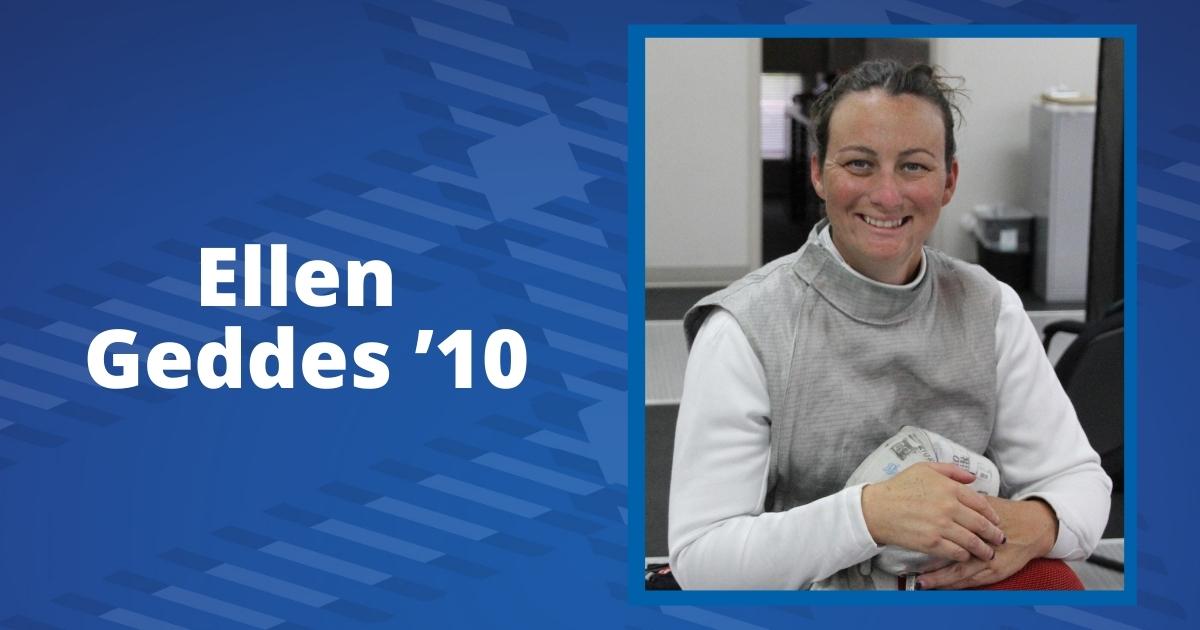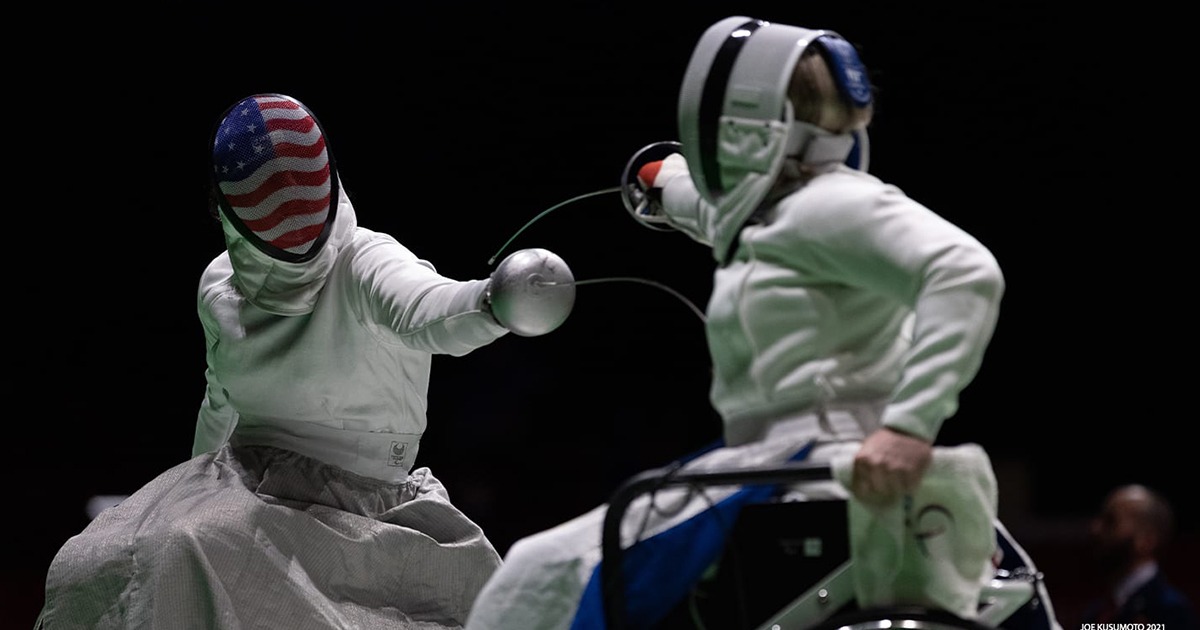Ellen Geddes ’10 competes in Tokyo Paralympics
 We remember the moments that change our lives. Milestones like learning to ride a bike or graduating from school. Life events like marriage, the birth of a child, or the loss of a loved one.
We remember the moments that change our lives. Milestones like learning to ride a bike or graduating from school. Life events like marriage, the birth of a child, or the loss of a loved one.
Then there are the events that turn the course of our lives altogether.
For Ellen Geddes, a 2010 graduate of Presbyterian College, it was undoubtedly the time she was involved in a severe auto accident a few days before her 23rd birthday. The impact of the crash hurled her truck end over end. It crushed the roof and sent her through the windshield even though she was wearing a seatbelt.
Amazingly, Geddes was not killed, nor did she break any bones. She did suffer a spinal transection at the 12th thoracic vertebra that left her paralyzed from the waist down.
Life-altering event? Obviously. Life ending? Not for Ellen Geddes.
An accomplished equestrian who grew up in South Carolina horse country, the Aiken native is as spirited a competitor as the equines she continues to work with. While rehabilitating at the Shepherd Center for Spinal Cord and Brain Injury Rehabilitation in Atlanta, Ga., Geddes had a second life-changing encounter.
“I went to the Shepherd Center’s gym on a Saturday to do some extra training,” she said. “The Shepherd Fencing Team was already there practicing, so I started watching them. Their captain came over to me and asked me if I was interested in learning how to stab people. I said, ‘Yes, of course.’”
And, thus, a future member of the U.S. Paralympic Team that competed last summer in Tokyo was born.
Geddes said she benefitted from the compressed timeline between her activities before the accident and her new endeavor.
“It was good for me to find a new sport,” she said. “I never really had a break or period where I was inactive. I went from horses to being hurt to rehabbing an injury to fencing. There was no gap.”
A year after her accident, Geddes competed as a wheelchair fencer in her first North American Cup, winning bronze in epee and foil. In 2013, she fenced at her first World Cup and in her first Wheelchair World Championships.
 But representing the United States in the Tokyo Paralympics has been the highlight for Geddes. Despite the challenges presented by COVID-19 and the restrictions placed on the athletes, she did get to meet new people and compete at the highest levels. The first-time Paralympian finished 10th overall in the individual foil and 11th in the individual epee. The U.S. team finished seventh in epee and eighth in foil.
But representing the United States in the Tokyo Paralympics has been the highlight for Geddes. Despite the challenges presented by COVID-19 and the restrictions placed on the athletes, she did get to meet new people and compete at the highest levels. The first-time Paralympian finished 10th overall in the individual foil and 11th in the individual epee. The U.S. team finished seventh in epee and eighth in foil.
“I really enjoyed the experience, but I came away from it feeling like I could do more,” Geddes said.
So, now she goes back to work, which includes working with horses. Geddes is the facility manager at Maplewood Farm and Bridlewood Farm and is the breeding director for Magnolia Sport Horses. Early in her fencing career, Geddes admits that she had to learn entirely new skills.
“Horses don’t respond well to a rider who is anxious and stressed, so I try to slow down and be as calm as possible,” she said. “But you can’t be still and do well in fencing, so I had to work at that. Fencing is a skill based more on quick movements and figuring out what your opponent might do.”
As she looks back on the events that shaped her life, Geddes also reflects on her time at PC.
“Our professors encouraged us to be flexible in our thinking,” she said. “One of the greatest lessons is learning how to adapt quickly to the changes that happen and how to engage with the world.”
